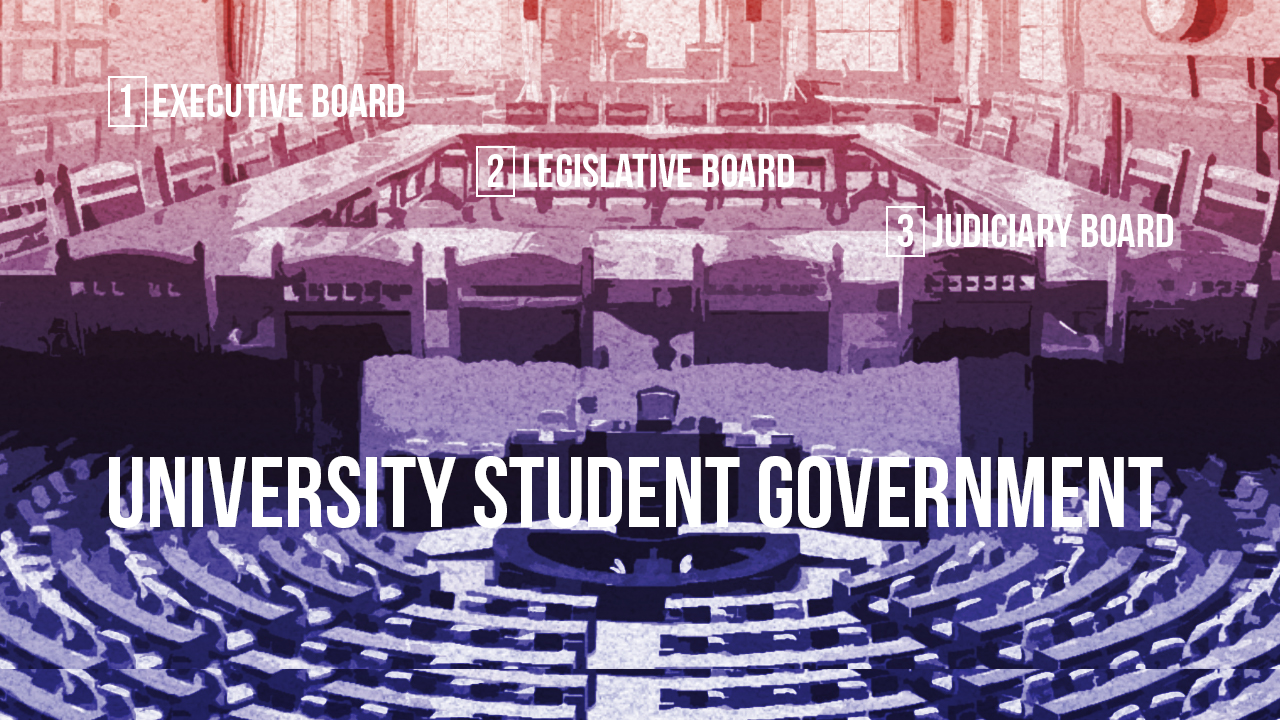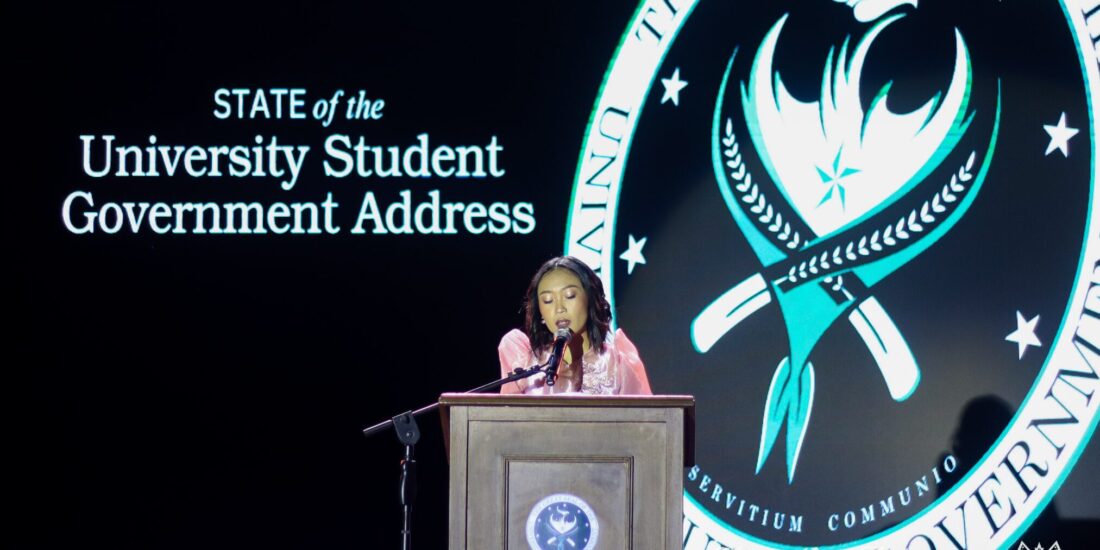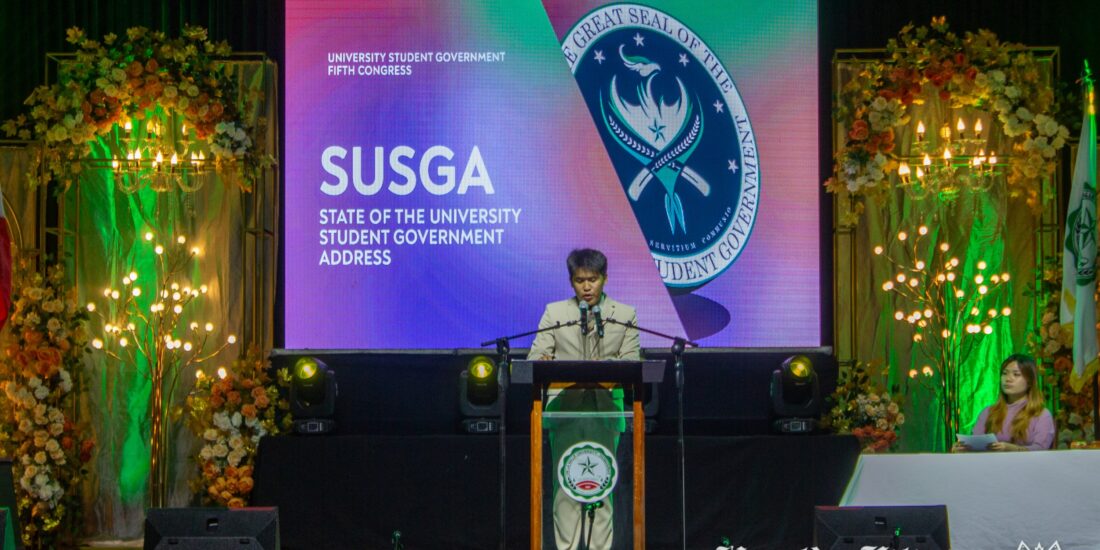What is the University Student Government?
As proposed by the University Student Council (USC), the highest student governing body has laid out its plan to change the name of USC to University Student Government (USG), also resulting in substantial changes in the functions and roles in the USC. From May 7 to 11, the students will have the opportunity in the upcoming plebiscite to vote either “yes” or “no” for the new constitution—but before casting your votes, here’s everything you need to know on the USC charter change and proposed USG:
QUICK FACTS
- According to USC 2017-2018 President Israel Pajarillo, the USG’s main purpose is to alleviate workloads from officers in the current government set up where various tasks are assigned to the incumbent officers and to influence student involvement and inclusivity in the USG.
- The USG requires a huge increase in the number of student officers. From the 15-person set up of the current USC (in the executive and legislative boards), the USG will be requiring 24 student officers, excluding committee members appointed to select offices.
- Pajarillo added that the USG will be patterned after the Philippine Government set up with the inclusion of the Executive, Legislative, and Judiciary Boards.
- The entire document of the proposed constitutional revision can be viewed here.
Three Branches of the USG
- Executive Board—as per USC, is “the highest governing body and is responsible for implementing, supporting, and enforcing the laws, rules and regulations of the student government.”
- The Executive Board will consist of the President, Vice President, Executive Secretary, Secretary of Finance, and Cabinet members for different offices such as Physical Development, Spiritual Development, Student Affairs, Student Welfare, Budget and Finance, Local Government, and Outreach and Advocacy Program.
- Legislative Board—will be “the highest policy-making body of the USC.” The power on legislation will be vested to the University House of Student Representatives or UHSR.
- The UHSR will consist of the Speaker of the House and University House of Student representatives (one seat per program).
- Recognized student groups will also be given automatic seats in the UHSR, such as the Council or Federation of Recognized Student Organizations, Athletes, Performing Arts Groups, and International Student Organization.
- The UHSR has the power to create offices and committees deemed important for the board operations.
- The Legislative Board also includes the Commission on Appointments in charge with reviewing “the prospects of the appointments in the offices of USG,” also chaired by the Speaker of the House, joined by six members of the UHSR.
- Judiciary Board—will “enforce all policies and have jurisdiction in cases concerning USG policies, laws, and activities.”
- The Judiciary will be handled by the University Student Supreme Court, which will consist of the Chief Magistrate and six magistrates under the chief.
- As per USC, their powers allow them to exercise original jurisdiction and review resolutions, contracts, laws, and memorandum of agreement of the Executive Board.
What happens to the College Student Councils and Program Councils?
- Student council presidents will be called Governors while Vice Presidents will be called Vice Governors, while the remaining officers for the council will be referred to as the Collegiate Board Members.
- Program councils will remain the same and will not be changed in the charter change.
What happens next?
- If the results of the plebiscite will be in favor of the charter change, the USC will undergo a semester-long transition and preparation during first semester before the full implementation of USG by the second semester of AY 2018-2019 with January 7, 2019 as its target day.
- With only seven USC officers expected to win in this elections, an overflow of appointment is expected, one of the probable reasons behind the long transition period allotment.
Pros:
- The charter change will provide a more defined structure and operation of various offices and will alleviate the workloads of the council members.
- This constitutional change will give students more autonomy as it widens the functions of students in policy making and policy implementation.
- The USG will increase inclusivity and student participation by giving program councils and recognized student groups a chance for a seat in the USG.
Cons:
- Despite the promise to be all-inclusive and participatory, Auxiliary Student Groups, which includes nine organizations such as the Reserve Officers’ Training Corps, are excluded from the automatic seats given to the Council of Student Organization, athletes, International Student Organization, and Performing Arts Group in the proposed Legislative Board, as commented by a student on the University Student Council Facebook page. Pajarillo explains the USC “overlooked various student representations” and believes the Auxiliary Student Groups should have an automatic seat in the Legislative Board, however the USC can no longer input changes in the final draft of the proposed constitution.
- The candidates for the 2018 University Student Elections ran for USC and not USG, and if this set up pushes through, some of the elected candidates will be placed in positions with different titles but similar responsibilities as the position they originally ran for. Flowcharting of positions will take place among officers.





